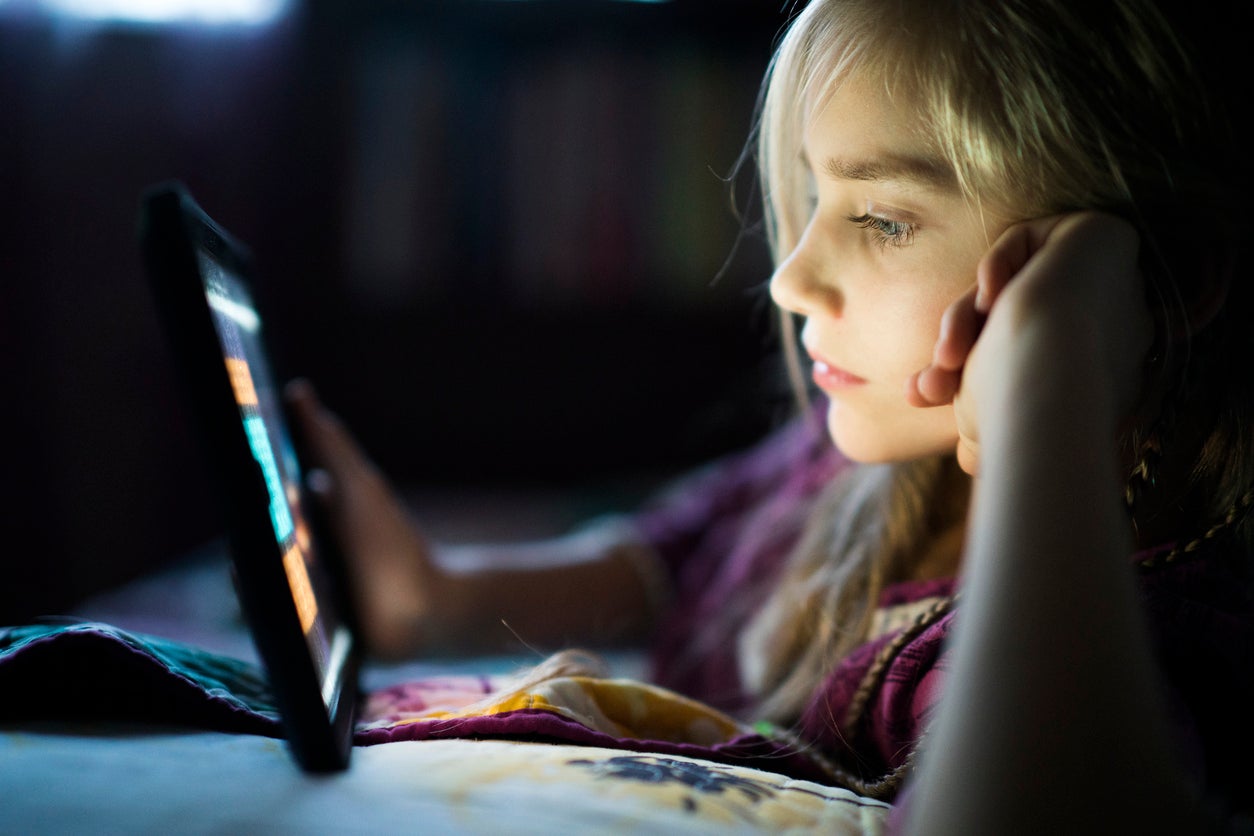Children could face social media curfew enforced by government
Less time tweeting, more time sleeping

Your support helps us to tell the story
From reproductive rights to climate change to Big Tech, The Independent is on the ground when the story is developing. Whether it's investigating the financials of Elon Musk's pro-Trump PAC or producing our latest documentary, 'The A Word', which shines a light on the American women fighting for reproductive rights, we know how important it is to parse out the facts from the messaging.
At such a critical moment in US history, we need reporters on the ground. Your donation allows us to keep sending journalists to speak to both sides of the story.
The Independent is trusted by Americans across the entire political spectrum. And unlike many other quality news outlets, we choose not to lock Americans out of our reporting and analysis with paywalls. We believe quality journalism should be available to everyone, paid for by those who can afford it.
Your support makes all the difference.Children growing up in today’s digital age have grown accustomed to being surrounded by all sorts of digital devices on a daily basis.
With one in four children under the age of six owning a smartphone, it’s easier said than done for parents to monitor the amount of time their children spend glued to a screen.
However, children could soon face the prospect of having to abide by a social media curfew that’s been put into place by the government.
Elizabeth Denham, information commissioner, is going to be overseeing the introduction of a new code that could force social media platforms to alter their settings for their younger users.
The social media platforms may have to start practising measures such as turning off notifications when children are asleep and deactivating features that encourage children to use apps excessively, such as when people using Snapchat try to achieve a ‘streak’ of consecutive messages.
According to The Telegraph, social media companies could face fines if they don't follow through with the future measures.
Denham is going to be consulting with parents and children to find out what they would find useful in the proposed social media curfew scheme.
“We are looking to do research directly with children and parents,” a senior official said.
“We are looking to make sure it’s more tailored to them.
“It’s giving children and parents a voice in this.”
The code will likely come into effect by the end of 2019 as part of the government’s new data protection act.
In March, the secretary of state for digital, culture, media and sport Matt Hancock suggested imposing limits on the amount of time children spend on social media.
He stated that introducing an age-verification system could help keep an eye on children under a certain age who use social media excessively.
“There is a genuine concern about the amount of screen time young people are clocking up and the negative impact it could have on their lives,” he told The Times.
“For an adult I wouldn’t want to restrict the amount of time you are on a platform but for different ages it might be right ot have different time cut-offs."
Join our commenting forum
Join thought-provoking conversations, follow other Independent readers and see their replies
Comments